Art show Exhibit B called off after racism protests
- Published
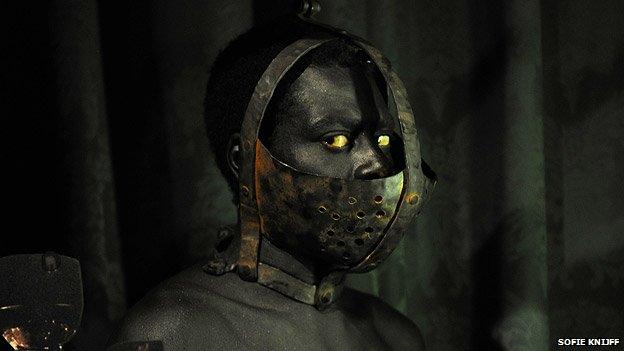
The Barbican said the show aimed to "confront the objectification of human beings" in the colonial era
A controversial art performance featuring black actors in a recreation of a "human zoo" has been called off after protests at its opening night.
Exhibit B, staged by The Barbican at The Vaults venue in London, was to have involved actors in chains and cages.
The Barbican said, external it confronted "the abhorrent historical attitudes to race during the colonial era" but protesters said, external the work was offensive and racist.
The Barbican issued a statement saying the five-day run had been called off.
It said "the extreme nature of the protest" outside the venue on Tuesday had led to a "serious threat to the safety of performers, audiences and staff".
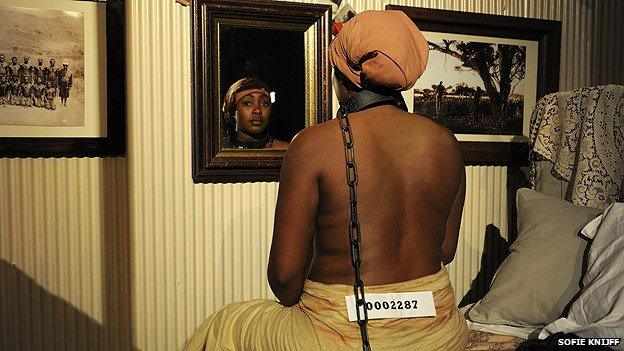
The show was described as "both unbearable and essential" when it was seen in Edinburgh in August
"We find it profoundly troubling that such methods have been used to silence artists and performers and that audiences have been denied the opportunity to see this important work," it said.
"Exhibit B raises, in a serious and responsible manner, issues about racism; it has previously been shown in 12 cities, involved 150 performers and been seen by around 25,000 people with the responses from participants, audiences and critics alike being overwhelmingly positive."
The statement added it was "disturbed at the potential implications this silencing of artists and performers has for freedom of expression".
Performer Stella Odunlami: "We were terrified"
A spokesperson for the Metropolitan Police said: "Police were called at 18:34 to reports of a fight at a demonstration in Leake Street, SE1. Officers attended and no arrests were made."
Protest organiser Sara Myers said there was no violence. "We did shut the door and stood outside the door and drummed and chanted and blew our whistles and blew our horns," she said. "There was absolutely no fighting at all."
She said she was "extremely pleased" about the eventual cancellation.
'Complicit racism'
"I'm actually quite sad that it took us protesting outside the opening night for them to decide to cancel it, because we had been trying to negotiate with them for the last month [saying] that this is offensive and we don't like it," she said.
"We also tried to explain to them why it's racist. They kept saying, 'No it's not.'"
Almost 23,000 people signed Ms Myers' petition, external calling the show "an outrageous act of complicit racism".
"We are deeply offended yet not surprised that the colonialism this piece purports to expose does nothing more than reinforce how effective it was and remains as a caging instrument of white supremacists," the petition said.
"We charge the Barbican with exhibiting institutional racism for agreeing to stage this poison."
In response, a statement from The Barbican said: "We state categorically that the Barbican is not neutral on the subject of racism; we are totally opposed to it and could not present a work that supported it.
'Confronting' inequality
Exhibit B, it went on, "aims to confront the objectification of human beings and the abhorrent historical attitudes to race during the colonial era, and to question how far society has moved on".
It added: "Engaging with these subjects in a work of art is always likely to be controversial and difficult, and we understand that people may be upset by the way in which the issues are portrayed in Exhibit B."
Exhibit B is intended to be a modern response to the "human zoo", in which Africans were put on show for the curiosity of the 19th and early 20th Century Westerners.
Visitors walk through a room in which black actors portray both historical human exhibits as well as modern-day asylum-seekers.
The work was created by white South African theatre-maker Brett Bailey, and was seen in Edinburgh in August.
In her five-star review from Edinburgh, The Guardian's theatre critic Lyn Gardner, external described the results as "both unbearable and essential", while The Edinburgh Reporter, external declared it "hugely powerful, deeply unsettling, but vital viewing".
- Published24 September 2014
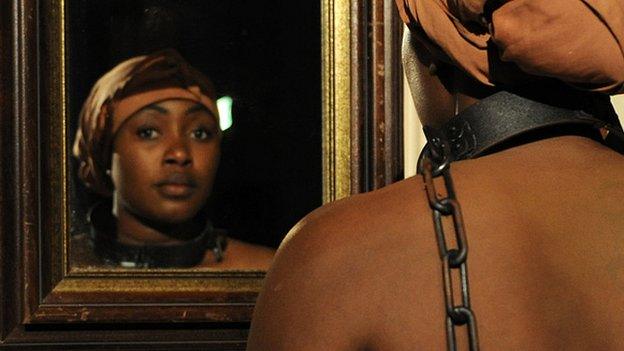
- Published24 September 2014
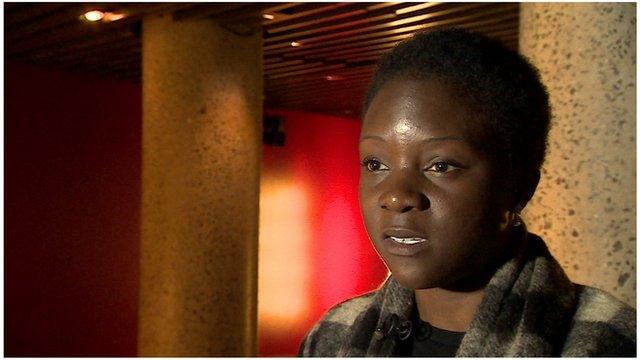
- Published1 September 2014
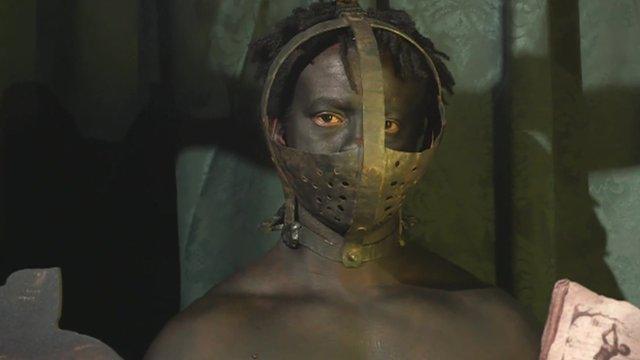
- Published15 August 2014
